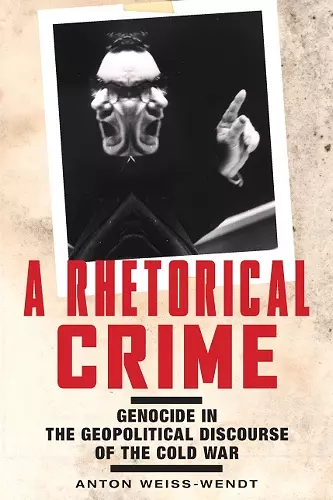A Rhetorical Crime
Genocide in the Geopolitical Discourse of the Cold War
Format:Hardback
Publisher:Rutgers University Press
Published:10th May '18
Should be back in stock very soon

The Genocide Convention was drafted by the United Nations in the late 1940s, as a response to the horrors of the Second World War. But was the Genocide Convention truly effective at achieving its humanitarian aims, or did it merely exacerbate the divisive rhetoric of Cold War geopolitics?
A Rhetorical Crime shows how genocide morphed from a legal concept into a political discourse used in propaganda battles between the United States and the Soviet Union. Over the course of the Cold War era, nearly eighty countries were accused of genocide, and yet there were few real-time interventions to stop the atrocities committed by genocidal regimes like the Cambodian Khmer Rouge.
Renowned genocide scholar Anton Weiss-Wendt employs a unique comparative approach, analyzing the statements of Soviet and American politicians, historians, and legal scholars in order to deduce why their moral posturing far exceeded their humanitarian action.
"New Scholarly Books: Weekly Book List, June 8," by Nina C. Ayoub— Chronicle of Higher Education
"Anton Weiss-Wendt has presented clear and innovative arguments on a crucial topic and scrupulously supported them with relevant documents and other evidence. In so doing, he has written a salutary alternative narrative of human rights in the Cold War, one that has the potential to improve our understanding of Cold War dynamics as a whole."— Michigan War Studies
"No one to date has documented the history of the concept of genocide with the same level of sophistication as Weiss-Wendt. A Rhetorical Crime stands as the definitive study of this period in the evolution of international criminal law."— David Crowe, author of War Crimes, Genocide, and Justice: A Global History
ISBN: 9780813594668
Dimensions: 229mm x 152mm x 20mm
Weight: 481g
272 pages